#i see a lot of people i consider friends perpetrate this btw. you guys get real weird when a woman is involved and don't extend that to men
Text
being a woman in any film space, be it filmmaking, cinephilia, film festivals, film school, any and all of it, and like not getting frustrated and leaving that world altogether? you are god's strongest fucking soldier and i love you so much.
#like every day i see the most casual sexism and it's all rot. literally it's damned if you do damned if you don't#if you're competent and successful and good at what you do you're a shill if you're a little more inconsistent in quality you're a hack#if you're passionate about film and watch a bunch of movies you're a fake but if you just tow the canon line again you're a shill#if you take up space on tee cee em you're taking the space of a man who deserved it more than you and you're a shill.#if your curated series is creative and unique it's BAD and ANNOYING! but if you show old standards.... again. HACK! SHILL!#i see a lot of people i consider friends perpetrate this btw. you guys get real weird when a woman is involved and don't extend that to men#typical nuance enjoyer when it comes to a film a woman made: time to say the most out of pocket misogynist shit! do u still think i'm cool
29 notes
·
View notes
Note
I’m curious. How is your bully like Zuko? BTW this isn’t to dismiss you’re experience - I used to be bullied in Middle School and the bullies reminded my of Azula which made it hard for me to like her (also like the bullies from Carrie). So I’m intrigued to see the POV of someone thats bullied by someone thats like a character that isn’t a bully. BTW I’m not a Zuko fan girl
So little warning here for some mentions of violence and abuse.
Actually that's a fair question. There was this kid in my class who was prone to angry outbursts. My most vivid memory of him was when I was in a home ec class (for those who don't know its a cooking and sewing class that everyone was required to take). I sat at across from him. One day we were working with irons and ironing boards and this kid looked at myself, the girl next to me and the person next to him and told us that if any of us accidentally burned his finger that he'd smash the hot iron into our faces. I had to sit across from him the whole year.
I did feel bad for him because it was known that he did have problems at home and that he was a victim. But he was still terrifying to be around because 1. he raised his voice a lot (something I already had a problem with but that's a different story) 2. anything could set him off at any time and 3. he was prone to getting into physical altercations with classmates.
Zuko prior to redemption was very easy to set off, constantly yelled and snapped, and would physically lash out. Like if pre-redemption Zuko was a real person he'd scare the hell out of me. I absolutely can't stand raised voices because my dad (though he never got physical) would get really loud with me. Raised voice don't send me into panic attacks or anything but they make me very uncomfortable and tense.
Also going to note that my dad got the help he needed and we've been in good standing for years now. Tbh now that I think about it, I think that Zuko reminds me more of my dad than said bully. And this is why I can't call Zuko evil or irredeemable. Because my dad was't evil and irredeemable. Like how I can't call Azula irredeemable because my sister wasn't. Basically I come from a family that struggles with mental illness and so I have trouble saying that Azula (and even pre-redemption Zuko) were evil. They were both just messed up kids from a messed up situation. Just like my dad was and just like my sister was. Frankly I very well could have been in my sister's place.
That's the other thing about bullies; they come in all forms. I've seen people with personalities like Toph's (badass, sarcastic, tough girl) act as bullies. I've seen people like Katara (motherly, political, and fierce) act like bullies--think of those people who think that their opinions are the only right one. One of my other bullies was sort of like Sokka. This kid was the class clown and everyone though he was hilarious (even I did at times) but then he would make jokes at my expense. Sokka and Jet can also represent those guys who did the 'hur hur, my friend thinks you're pretty/wants to date you' crap. I firmly believe that anyone can be a bully. Any personality type can be used for good and evil so to speak. You can be like Sokka and use humor to be funny or you can use it to hurt someone. You can be like Katara, strong-willed and opinionated and direct that to positive change or you can use it to perpetrate bigotry. You can have a personality like Azula's (sharp, clever, and charismatic) and you can use that to be cleverness to hurt people or you can use it to problem solve and make changes.
And one more note. I can see how my last two posts can be dismissive of people who were bullied by people like Azula. I know that you didn't say that, but I feel like this should be noted anyhow. That's not my intent because stories like yours are should be considered just as much as stories like mind. I can definitely understand why you and others would be off put by a character like Azula. What I was trying to get at with my other two posts was that there are other perspectives out there and that it is very possible that someone associates the character you (well not you specifically, just in general) stan with someone who bullied them. I just don't think that it's fair to assume that someone hasn't experienced bullying or abuse because their experience isn't like one's own. It's less fair to assume that someone is an abuse apologist because they favor antagonists. The way a lot of antis talk makes it sound like Azula fans condone bullying and abuse when the truth is that most of us understand that she has done messed up shit that we don’t condone, we just believe that she can still be helped. I have heard several stories now about people who used to be like Azula but changed for the better. These people feel demoralized or awful because many antis talk as though there is no room for growth not just for Azula but for real people who relate to her and have made mistakes like hers in the past. That was a bit longer than intended.
I hope all of that answers your question and makes sense. Thank you for the ask and for being respectful about it!
Also wasn’t sure if I should tag Zuko in this or not because I don’t feel like it’s hate. If you want me to remove Zuko from the tags let me know because I don’t want to be a hypocrite lol.
16 notes
·
View notes
Note
What are some things about Judaism and Christianity that you learned that surprised you? What about polytheistic religions like native american animism, Buddhism, Shinto and Jainism? Zoroastrians? Baha’i? Yazidi?
Anon this is… such an in-depth question! Idek where to begin here. Of all those religions, I have learned the most about Judaism since I stopped being religious. What I knew about Judaism prior to maybe 5 years ago was mostly just what Islam says about Judaism. Meaning, you know, from Adam to Moses, then it skips ahead to David/Solomon/Saul, then there are some brief mentions of Jonah and Ezekiel and that’s really it.
So I didn’t know a lot, and I wasn’t very interested in what I did know tbh. The only reason why I started reading the Bible is bc I wanted to compare it to the Quranic versions of the stories and see how much Mohammed fucked them up. And that was fun but I didn’t bother to look much further into Judaism past that. The Books of Kings and Chronicles, for example, I took one look at them, decided they were boring, and didn’t read them until only a couple of years ago. That’s when I first got into the whole Biblical history thing. I tried reading a book about how the Bible was put together and realized I didn’t know enough about the Bible itself to even begin.
I forced myself to read those four books and then some of the prophet books (side note: all of the female prophets were left out of Islam, I didn’t even know they existed. Damn it Mohammed!!!). And I’m glad I did, because it changed my whole view of the Jewish Bible. It’s a history book!! Like… that’s literally what it’s supposed to be, a (legendary) history of Israel/Judah, and every bad thing that happens to them is ascribed to YHWH getting pissed off at them, but then like my friend and her trash boyfriend he always forgives them and takes them back even tho they just go on to disappoint him again. The Bible is the world’s oldest and greatest self-drag!!!
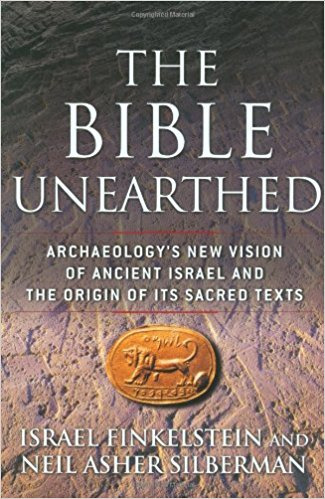
Once I actually knew the general chronology of the Biblical kings and shit I could actually make my way through this book without getting confused (mostly). Highly recommend this one for beginners btw, there is a PDF online and it’s not overly long.
And damn… I know there’s some debate about certain elements of it like the exact nature of the “documentary hypothesis” but even just focusing on the stuff that people agree upon, I didn’t know any of it before reading this, beyond there being no evidence for the Exodus/the huge kingdom of Solomon etc. I also knew that early Judaism was a system where multiple gods existed but YHWH was just their patron god, but I didn’t fully understand the process in how he got conflated with El and became the god.
More relevant to this topic, though, I didn’t understand the history behind the Bible itself. Deuteronomy being written separately/earlier than the rest and the Bible claiming that it was “found” in the Temple after like 900 years in Josiah’s time… like I had never even heard of Josiah prior to a few years ago and here I am realizing that this bitch perpetrated fraud that would make Linda Taylor proud. Tf. AND, the whole thing with Judah being way, way less developed than Israel, and Israel was actually a multi-ethnic and prosperous society, but then after the Assyrians handed Israel its ass the Judeans were suddenly the top bitch in school and wrote the whole Bible to make their former northern neighbors out to be assholes?? Wow Team Israel tbh.
Then when you get to the time of the Babylonian Exile tho you have to feel a bit bad for the people of Jerusalem, like the Babylonians were uncommonly dickish even for their time and the ppl of the city were clearly traumatized tbh… a lot of the stories in the Bible, especially those believed to have been added only after the exile, make a hell of a lot more sense when you realize the huge changes occurring in Jewish society at the time. The transition from “there are lots of gods but YHWH is our god” to “YHWH is the god” is completely understandable when you realize that people were searching for some explanation as to why they had all been uprooted and thrown out of their homes, and the obvious explanation is that, yet again, they had pissed YHWH the fuck off by worshiping other gods.
I feel like both Christianity and Islam (but especially Islam) try to separate many of Judaism’s better-known stories from the context of ancient Israel/Judah itself, presenting them as more universal stories that apply to everyone, but tbh the whole over-arching story doesn’t work unless you look at it as a history written by and for Jews who were rebuilding their religion and society in a volatile period. I’m reading this rn and it’s relevant to that topic.
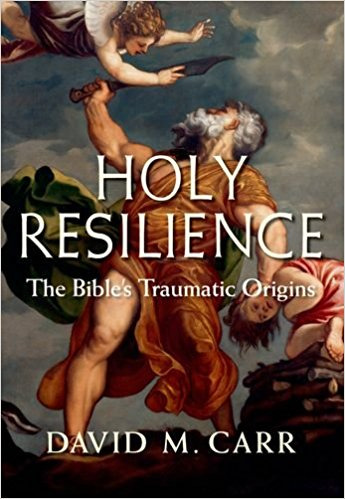
It’s truly a damn shame that pretty much like 0% of Muslims have been exposed to any of this tbh? I feel like almost all scholars of Biblical history come from non-Muslim countries. I have more feelings on this subject but let me answer the rest of your question. First of all, Christianity. I read the New Testament in full a couple of years ago as well. It was obviously way easier to read because the Gospels are all different versions of the same story and the rest is just supplementary material, basically. I think the text itself is pleasant and Jesus was a chill dude. I like him. And the whole… sequence of events made much more sense after I’d read the Book of Isaiah and realized that the authors of the Gospels were viewing Jesus in light of those prophecies. Revelation is a fascinating shrooms trip. The Acts of the Apostles were fun to read, but all the letters were just like w/e. More historically interesting (if they’re real) than interesting in terms of content. Though I do think some of the content in them is very nice, idk if people know this but Muslims think Paul was responsible for perverting the (non-existent) “real” Gospel of Jesus and paint him very poorly. But I dunno, the letters seemed fine to me.
Tbh I was surprised to see how different Islam’s version of Christianity/Christian stories is compared to the “real thing”. I don’t even mean his disastrous misconceptions of Christian theology but just like… with the stories Mohammed pulled from the Jewish Bible (and the Talmud–which I also enjoyed flipping through btw, it’s like a bunch of old guys yelling at each other in written form), he gets details wrong but the overall stories are basically the same. But with the Christian stories, barely anything in the Quran is from the Bible. I think I’ve said this before but like 90% of the stuff pulled from Christianity in Islam is about baby Jesus, not adult Jesus, and even that stuff isn’t from the Bible. It’s understandable when you realize that he was listening to these stories, not reading them, and just picked the ones he liked best… which happened to be later texts. That brings me to a subject that is near and dear to my heart:
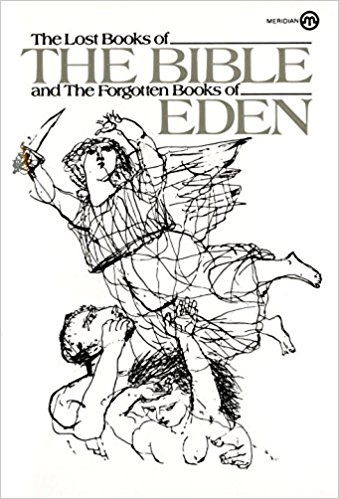
Apocryphal texts bih. I love this shit, with full sincerity and zero irony. The weirder it gets, the better. I started out just reading the ones that made it into the Quran, like the Life of Adam and Eve, the Infancy Gospels that I’ve mentioned before, and the Testament of Solomon. Then some Gnostic stuff, which I only read because it has the same substitute-crucifixion thing going on as Islam, but WHEW chile the DRUGS these ppl were on while writing this shit…! The Sethians and the Nag Hammadi library produced such treasures of crazy-ass literature. It makes me sad how so much of this stuff is just totally forgotten now that Christianity is mostly just Catholic/Protestant+Orthodox. There were so many sects and people had so many divergent ideas, some more drug-assisted than others probably!! And Middle Eastern Christianity was very diverse even in the 7th century. Some of the stories they produced had such rich lore. My fave right now is this Syriac collection:
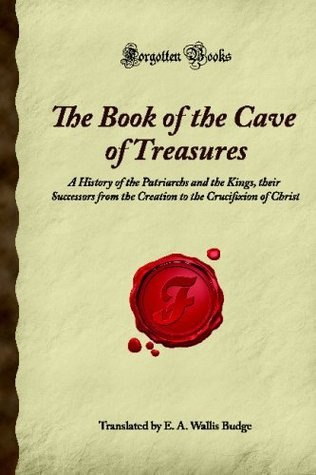
I came across this one while looking for the origins of the al-Khidr story in the Quran. There were all sorts of opinions about who he was, bc Mohammed never really gave any details on his life, but Ibn Ishaq recorded an opinion that al-Khidr was the one who buried Adam and Allah granted him long life in return. So I looked for the source of that story and it was the story of Melchizedek in this book. Then I read the whole thing and man this would make for some weird psychedelic series or sth. It’s online, look it over and you’ll see how trippy it is.
Um… anon this is getting rly long tbh so let me sum up my knowledge of Shinto, Native American animism, and Jainism: not much!! Buddhism I have only an intro-level knowledge of, I know the basics but I don’t know more than that. The beliefs of Yazidis I don’t fully understand, but the little I know is pretty cool. From what I understand it’s a blend of pre-Islamic Kurdish religion + early Islamic influence + some other influences thrown in. It’s sad how they’re branded as devil-worshipers or w/e when the story of Melek Taus is actually really interesting and has a good moral and is way, way better than the story of Iblis. I also enjoy Yazidi architecture and that unique ribbed cone top of theirs. I hope they’re able to live on as a community after, uh, recent events.
I actually was taught about Bahai people growing up but I was told it was some heretical offshoot of Islam comparable to Ahmadiyya people. I didn’t realize it was considered its own religion until fairly recently tbh. I did read the Kitab al-Aqdas (which is blessedly short, this makes Bahai a great religion automatically!!) once. It’s definitely super inspired by the Quran in terms of style and to me clearly seems to be an attempt to make a Kinder And Also More Iranian Islam. I think it’s pretty neat. In fact I think a lot of attempts to magically make Islam “nicer” would just end up making it more like Bahai tbh. And it has a really fascinating history, with the Bab basically being a new John the Baptist and Bahaullah being the one he foretold. He even accidentally ended up in Israel lmao. I also really love Bahai architecture in terms of how diverse it is, with the only unifying feature being visual interest, and I would love to see the temple in India irl one day. India always has the best architecture anyway.

I saved Zoroastrians for last bc I have to be honest here. I tried to look into it, because it’s ancient and had an influence on Judaism etc and that makes it important. Fam I got about 3% of the way through the Avesta before giving up. I was still in the hymns part and just like… every other word was something I didn’t understand. I will go back and try again one day but for now the answer is “lol idk”.
ANYWAY… yeah… I’ve enjoyed reading about religion way more now that I’m not religious, both in terms of Islam and other religions, I can appreciate the process or w/e now that I’m not constantly trying to make it fit into Islam or panicking every time I spot something that makes me question my faith. I know a lot of atheists either fall away from religion altogether or just look at it like it’s something dumb, but even if it’s fake, that doesn’t make it worthless imo. The history itself is always worth studying.
32 notes
·
View notes
Text
Fantastic Beasts and Where to Find Them, The film: Deeper First Impressions - Part 2: Law
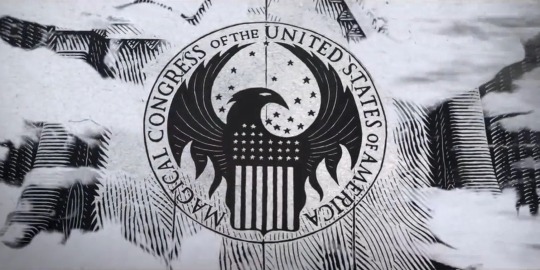
Wizarding History-wise: Mainly Law
In my first part, which was rather short, I dwelled on immigration laws and speakeasies. The Roaring Twenties. This time I’m going much more gloomy, creepy and even scary. I’m exploring the relations between Wizarding communities and Muggles, and Death Penalty. It’s a bit tougher than the first part, but it’s so important in the film that I reckon it’s capital to be discussed.
Again, feel free, and please do so, to comment or express your doubts or opinions :)
Rappaport’s Law: the Whys and Whens
You might wonder why I’m talking about that, but it’s not totally pointless. Just read on. :P
In 1790, Emily Rappaport, then the 15th President of MACUSA (MACUSA - the Magical Congress of the United States of America - was created in 1693), passed a law that imposed total segregation between Magical and Non-Magical communities. It followed one of the most serious breaches of the International Statute of Secrecy a few years before.
The breach came from within MACUSA.

Rappaport had a trusted Keeper of Treasure and Dragots, Aristotle Twelvetrees. He himself had a dim-witted daughter called Dorcus, who was more interested in fashion and parties than magic. One day, Dorcus met a Muggle called Bartholomew Barebone, who was a descendant of Scourers (see below). Like all Scourers, he believed in magic, and was firmly convinced all wizards and witches were evil. Dorcus, besotted, showed Barty some ‘tricks’, and took his interest to face value. He, however, was genuinely but malevolently interested in what she had to say, and tricked her into answering delicate questions about MACUSA and Ilvermorny. She also happened to tell him how both places concealed their existence to the Muggle world. She was so stupid that ‘be a Dorcus’ became slang for being an idiot.
Having gathered what he needed, Barty (btw Barty seems to be a doomed name in the Wizarding World) stole Dorcus’s wand, showed it to all the journalists he met, gathered a small group of friends and set off to eliminate all the wizards and witches in the neighbourhood. He also printed leaflets with the addresses of suspect people.
He was so entranced by his mission that he shot at a group of people near a ‘suspect’ building. He thought they were wizards, but turned out to be Muggles. The Muggle police arrested him and MACUSA was very relieved they did the job for them.
This led to Dorcus being imprisoned for a year, the uncertainty of every Muggle in contact with Barty’s information being Obliviated, and the creation of Rappaport’s Law.
The Law states that wizards are not permitted to marry or even befriend Muggles. Penalties are strict and harsh. Communication with Muggles was to be limited to the very minimum.
It ended up with MACUSA working totally independently from the Muggle government in the USA, whereas there was always co-operation in Europe. It also had that side-effect of Muggles being considered more and more as a threat in the USA, and the wizarding community going more and more underground.
Rappaport’s Law was still strictly followed in 1926 when Newt arrived in New York. So much so that there is a copy of the book in the offices at MACUSA. It is a handbook that is commonly used when tackling offenses to the Statute of Secrecy.

In the 1920s
By 1920, the USA and most of the world had gone through World War One, where both magical and non magical communities fought alongside each other. The old order of the world was dead, the USA were rising as a new power, the United Kingdom was starting to lose its colonies, Europe was the stage for Revolutions and inflation, unemployment and anger. Many people tried to seek their fortunes elsewhere.
While US wizards had done their bit in the war, and one may think that the co-operation with Muggles on the front might have softened MACUSA’s position on Rappaport’s Law, nothing of the sort happened, and the sort of pure-blood ideal of MACUSA was carried on. (Nothing to do with the pure-blood ideal Europe had through such families as the Malfoys or Lestranges, of course). Any breach was punished severely and the Muggles Obliviated immediately. In the film, Tina, after having been demoted as an Auror because of having nearly exposed the Magical community, has to wear an Admonitor Bracelet to monitor her movements. And later both her and Newt are sentenced to death under the chief of having broken the Statute of Secrecy.

MACUSA’s position about beasts, creatures, ghosts and spirits was also much more severe than what Europe stood by, which explains why Newt’s arrival is a threat per se. New York has banned the breeding (and I suppose, by extension, the keeping?) of magical creatures. So when Newt tells Tina he is there to buy an Appaloosa Puffskein, she replies ‘We closed that guy down a year ago. We don’t allow the breeding of magical creatures in New York.’ (scene 19)

At the end of the 19th century, a law was passed that required all witches and wizards of the USA to carry a wand permit (the equivalent of a driving licence in the Muggle world). Its aim was to be able to trace magical activity and identify perpetrators. Honestly, this sounds a lot like dictatorship to me. Like extending the Trace to beyond 17-year old people.
Anyway, to enter the USA, Newt Scamander had to have such a permit, but as you know, he never got it. According to the script, he actually never applied (scene 24).
Death Penalty: Muggle World and particularly the USA
Death penalty has been a sentence in human history for millennia. However, for some centuries now, some countries have decided to get rid of it. In Europe, the last country to retain death penalty is Belarus (last execution in 2016) and the last to abolish death penalty (but for how long, now) is Russia (2009). The first countries were San Marino, in 1468, and Liechtenstein in 1785. By that time, the USA were barely born. Great Britain abolished Death Penalty in 1965 (Northern Ireland in 1973).
The USA today still have death penalty in 31 States and the Federal Government has the right to use it under special circumstances. However, the abolition of death penalty in some states goes back as far as 1846, when Michigan abolished it for murder, followed by Wisconsin in 1853 and Maine in 1887. Today, the crimes for which someone can be sentenced to death are mainly aggravated murder and crime against the State. However, each State has their own list of factors that can lead to a death penalty. Twenty people were executed in the USA in 2016.
The main execution method at the time of Newt Scamander was the electric chair, introduced in 1888 in New York, and soon adopted by other states. Hanging, often public, was also in use. In 1924 the State of Nevada decided to try a ‘less painful’ way of killing its citizen, and used cyanide gas for the first time. They tried to inject the gas in the culprit’s cell while he was sleeping, but that proved impossible, so they built the first gas chamber.
Wizarding World
In the Harry Potter series, there is no official death sentence but that of Buckbeak the Hippogriff. Humans aren’t sentenced to death by wizarding law in the UK. However, they are sentenced to Azkaban or to receive the Dementor’s Kiss, which can be related to a sort of death, but none of the two sentences is a plain and straightforward death penalty. In both instances, though, the condemned is fighting the sentence with some kind of will, or at least disagrees with it (usually).
In Fantastic Beasts, the death penalty exists per se for humans, and the condemned are tricked into dying.
Azkaban
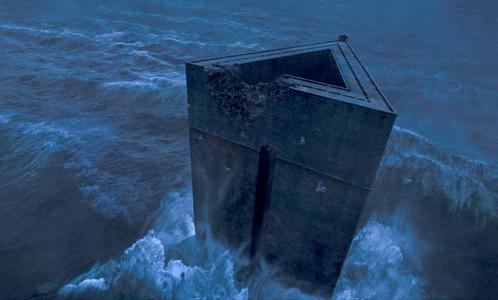
Azkaban was not intended as a prison and Dementors weren’t created to guard it. It was the home of a weirdo called Ekrizdis, who dwelled deep into Dark Arts. When he died, and the house became plottable, the Ministry of Magic (MoM) sent people to have a look at the building. The least worse thing, according to the wizards who went to inspect the place, was that it was full of breeding Dementors. To make a long story short, Dementors were considered dangerous and to keep them confined to Azkaban the Minister for Magic of the time, Rowle, made it a prison. This was done after the International Statute of Secrecy had been adopted (signed 1689, established 1692).
Azkaban prisoners are described as getting mad at the contact with Dementors, who are sucking their joy and happiness, leaving them with their worst memories and despair. Most of them end up dying there. Of course, some fight and stay alive, like Sirius or the Death Eaters.
However, mostly, the life prisoners die in Azkaban, and a life sentence there can be assimilated to a sort of death penalty.
The Dementor’s Kiss
The Dementor’s Kiss is a sort of death penalty too, if you consider that losing your soul is dying. It’s a tricky question, the immortality of the soul. Basically in our society, we believe that soul is something immortal, be it a Muggle or Wizard one. So it would survive bodily death.
With Dementors on the loose, it’s a bit more complicated. See, if a Dementor sucks your soul, then only your body survives because its vital functions are untouched, but the soul is dead. As Lupin says when he explains what a Dementor is to Harry in his third year:
‘You can exist without your soul, you know, as long as your brain and heart are still working. But you’ll have no sense of self anymore, no memory, no … anything. There’s no chance of recovery. You’ll just - exist. As an empty shell. And your soul is gone forever … lost.’ (PoA, Chapter Twelve, The Patronus)
Lupin also tells Harry that the Kiss is much worse than killing. And to a certain extent, it is, because the only thing that made you a ‘living being’ in the human sense of the phrase, that is, one with feelings and memories, which is the soul, has gone. You are only a mechanical and chemical thing working. Biologically you are alive, but that’s about it. I wonder if you can communicate, though. If we concentrate on Lupin’s sentence ‘you’ll just - exist’ that means that you are only a body and not a person anymore, so you wouldn’t need to communicate. Would you eat? Drink? Would any of your bodily needs reach your brain? I suppose so. Primary animals and plants who don’t have a way of feeling like we do still react to stimuli, are aware of their environment, feed themselves and live, biologically speaking.
The body will die eventually, anyway, because it is mortal. The soul couldn’t move on whatever happens to the body, because it’s been sucked out and probably destroyed by the Dementor.
So is the Dementor’s Kiss a death penalty? No. It is worse than death, because even the soul gets killed, so no part of the person can move on.
MACUSA Execution Chamber
In Fantastic Beasts and Where to Find Them, Newt Scamander is sentenced to death by MACUSA (in the person of Percival Graves) on the charge of bringing an Obscurus to New York City and breaking the International Statute of Secrecy (scene 65). Of course, Graves knows the Obscurus in Newt’s Trunk is harmless and hasn’t caused any disruption, but he wants Newt out of his way, while himself tracking Credence, an Obscural, in order to use him for his plans. He’s Grindelwald, after all.
The death sentence here is plain and straightforward:
‘[...] you are therefore guilty of a treasonous betrayal of your fellow wizards and are sentenced to death. Miss Goldstein, who has aided and abetted you -[...] - receives the same sentence.’
By the way, Graves says he’s informing Seraphina Pickery himself about the death sentence, but I have a strong feeling he won’t do that.
The Execution Chamber… it’s horrid.
It looks like a mix between the most used method of execution in the Muggle USA at the time, namely electric chair and gas, and the ducking stool, which was a common way of punishment until the early 19th century.
The link with the chair is pretty obvious. The gas would have been used (and is still used) to make the condemned unconscious before he dies properly. The condemned is actually encouraged to inhale the gas deeply to accelerate the process. That’s barbaric.

The ducking stool is a chair made of strong wood, usually oak, that was used in Europe and the first American colonies as a punishment. The condemned was strapped to the chair and the chair was ducked into water with the help of a long wooden beam. The condemned, usually a woman, was then immersed a number of times decided by the jury. That is ducking. It was a scolding method, yet it was sometimes fatal to the condemned.
Now MACUSA has sort of similar methods.
The Interrogation Chamber is a low-ceilinged, metallic, black, cold, suffocating place, situated underground. Not much hope when you enter it.
The Execution Chamber is called the Death Cell. It is white, and has a weird pool in it, full of a strange potion. You enter this place via a black metallic corridor. The chair is floating over the pool. It’s a bit like a giant Pensieve (that was my first idea, and then when I read about the concept art and creation of the Cell it came out it was partly true). David Yates, the director, wanted it to look ‘clinical, cold, austere, frightening’. It certainly does look so. It looks like a hospital cell for severe mental illnesses from forgone times… On the other hand, if you consider the way MACUSA is treating people, they are aliens. As such, they are treated as alienated, mental, weirdos, not fitting, and above all, threats to the Wizarding Community of the USA. Look at pictures of asylums. The Death Cell is exactly modelled on that. White. Cold. Inhuman. Dead.
The fact that it is located so far underground that the very foundations of the Woolworth Building (siege of MACUSA) are visible ABOVE the floor level suggests secrecy, an atmosphere of a mortuary, where both living and dead dwell together. It increases that heaviness and the scary atmosphere of the place.
The liquid in the pool is a bit like the Veil in the Death Chamber of the Department of Mysteries in the London Ministry of Magic. It’s a Gate to the Beyond. The difference resides mainly in the fact that the Veil is not the Killing Means. It’s a mere gate, even if Harry was drawn to it and that he could have died had he stepped beyond it. Yet its first object was never death per se, but hosting the dead. The Silvery Liquid in the Pool of MACUSA Death Cell is way more dangerous. It is the Means of the Death. The way MACUSA executes their condemned.
When Newt and Tina arrive at the Death Cell, the executioner, Bernadette, extracts Tina’s happy or positive memories from her head and pours them into the pool, which begins to show them, like in a Pensieve, while Tina’s expression has become vacant, and she has instantly calmed down from the panic state she was in on entering the room. As if she had been Obliviated (yet she’s not). Tina watches her own childhood memories and smiles. When Bernadette asks her if she wants to join her mum in the pool she nods, still vacantly. Only when the memory with Credence appears does something happen in Tina’s head.
Tina ends up on the chair, yet not strapped like on a ducking stool. She’s still gazing at her memories. The whole aim is to make her so dizzy and absent as to agree to step into the pool and die (of which she wouldn’t be aware of anymore, being bewitched by her own good and nostalgic memories). The potion then rises and engulfs the condemned and their chair into a bubble of lethal liquid which, if my memory is correct, is also very corrosive.
In Fantastic Beasts Tina and Newt escape. But how many have gone through this and willingly jumped into the potion or been swallowed by it? This new series of Wizarding World films seem to explore darkness and justice on yet another level than the Harry Potter books. Not saying it’s Darker. I mean Horcruxes are scary enough. I mean exploring human ways of killing. This one is really barbaric.
Moreover, the fact that the room is white and the executioners are dressed in white smells strongly of psychiatric hospital. It points again to the fact that those sentenced to death are weirdos, aliens to the community. After all, they were sentenced for treason.
The condemned actually are drawn into committing suicide… so that MACUSA wouldn’t be feeling guilty? This is totally deranged.


Sources for part 2
Kaspi, André, Les Américains, I. Naissance et essor des Etats-Unis 1607-1945, Editions du Seuil, Paris, 1986 (last edition exists, printed 2014), chapter 9
Pottermore, History of Magic in North America, Writings by J.K. Rowling
Boboltz Sara, Let’s Talk About That Messed-Up Death Penalty In ‘Fantastic Beasts’ For Just A Minute, Huffington Post, 19.11.2016. Link:
http://www.huffingtonpost.com/entry/lets-talk-about-that-messed-up-death-penalty-in-fantastic-beasts-for-just-a-minute_us_582f07cde4b058ce7aaa9c28
Capital Punishment in Europe, wikipedia: https://en.wikipedia.org/wiki/Capital_punishment_in_Europe
Capital Punishment in the United States, wikipedia: https://en.wikipedia.org/wiki/Capital_punishment_in_the_United_States
History of the Death Penalty, Death Penalty Information Centre: http://www.deathpenaltyinfo.org/part-i-history-death-penalty
Sehon Scott, The Soul in Harry Potter, in The Ultimate Harry Potter and Philosophy - Hogwarts for Muggles, edited by Gregory Bassham, Blackwell Philosophy and Pop Culture Series, Wiley, 2016, pp. 7-21
Rowling, Joanne K., Harry Potter and the Prisoner of Azkaban, Bloomsbury, 1999
Rowling, Joanne K., Fantastic Beasts and Where to Find Them - The Original Screenplay, Scholastic, 2016
Gas Chamber, wikipedia: https://en.wikipedia.org/wiki/Gas_chamber#United_States
Cucking Stool, wikipedia: https://en.wikipedia.org/wiki/Cucking_stool
Salisbury, Mark, and MinaLima, The Case of Beasts - Explore the Film Wizardry of Fantastic Beasts and Where to Find Them, Obscurus Books, Diagon Alley, London; Harper Collins, London, 2016
#Fantastic Beasts And Where To Find THem#Death Penalty#Rappaport's Law#Louhi#Azkaban#Dementor's Kiss
3 notes
·
View notes